What to Wear to an African Wedding: A Guide for Guests
Fatimata Women's African Print Organza Maxi Dress (Navy Green Kente)
African weddings are vibrant, joyous celebrations filled with culture, tradition, and style. Whether you’ve been invited to a traditional African wedding or a modern fusion ceremony, choosing the right outfit is key. Unlike Western weddings, where the dress code often follows a strict formal or semi-formal guideline, African weddings are a grand display of rich fabrics, bold prints, intricate embroidery, and cultural symbolism.
As a guest, you want to dress appropriately, respecting cultural customs while also looking stylish. But with so many traditions across Africa, how do you know what to wear? Should you wear Ankara, Kente, Kitenge, or Agbada? Is there a color you should avoid?
This guide will help you navigate African wedding fashion with confidence. We’ll cover everything from traditional attire and modern options to choosing the right fabrics, accessorizing like a pro, and cultural etiquette to ensure you shine at the celebration—without upstaging the couple!
Understanding the Dress Code: Traditional vs. Modern Attire
Before picking your outfit, it’s essential to understand the dress code. Some African weddings strictly adhere to traditional attire, while others embrace a modern twist.
Traditional Attire: Embracing Culture
Many African weddings require guests to wear traditional clothing that represents their cultural background. If you’re unsure, check with the bride, groom, or wedding invitation to see if traditional attire is preferred.
-
West African Weddings (Nigeria, Ghana, Senegal) – Guests often wear Ankara, Kente, Aso Ebi, or Boubou for men. Women wear lace or embroidered gowns with gele (headwraps).
-
East African Weddings (Kenya, Tanzania, Ethiopia) – Expect Kitenge, Kikoi, or Dashiki-inspired outfits for guests. Ethiopian weddings often feature Habesha Kemis for women.
-
Southern African Weddings (South Africa, Zimbabwe, Zambia) – Traditional Xhosa, Zulu, and Shweshwe dresses are common, with beadwork and vibrant patterns.
Modern African Wedding Fashion
Some weddings blend traditional and contemporary styles, allowing guests to wear:
-
Elegant gowns and suits in African-inspired prints
-
Jumpsuits, peplum dresses, or fitted suits with an African fabric touch
-
Western-style formalwear with accessories that reflect African culture
If you’re not sure whether to go traditional or modern, ask the couple for guidance. It’s always better to follow the cultural expectations rather than show up underdressed or inappropriately styled.
Hassia Women's African Print Stretch Dress with Tulle (Midnight Teal Abstract)
Malia Women's African Dress (Teal Maroon Multipattern)
Choosing the Right Fabric and Colors
The fabric and color choices you make will define your entire look. African weddings are known for bold, eye-catching prints and luxurious textiles that stand out in photos and celebrations.
Best Fabrics for an African Wedding Guest
-
Ankara (Wax Print) – A vibrant, durable cotton fabric with endless patterns. Ideal for dresses, suits, and accessories.
-
Kente (Ghanaian Handwoven Fabric) – A royal fabric often worn at prestigious events. Perfect for making a statement.
-
Lace and Brocade – Common at Nigerian weddings, lace gowns add elegance and richness to a guest’s attire.
-
Shweshwe (Southern African Fabric) – A bold, geometric-patterned cotton fabric, great for both men and women.
-
Silk, Chiffon, or Organza – Lightweight and flowy fabrics used for modern African wedding looks.
Color Etiquette: What to Wear and What to Avoid
African weddings often have a color theme, so check with the couple before deciding. However, here are some general rules:
-
Bold and bright colors are always welcome! Think deep blues, golds, reds, emerald greens, and purples.
-
Avoid wearing white! In many African cultures, white is reserved for the bride.
-
Black is usually not ideal, as it is associated with mourning in some traditions.
-
Gold and royal blue are excellent choices as they symbolize prosperity and celebration.
If the wedding has an Aso Ebi dress code (a uniform fabric chosen by the couple), be sure to purchase your fabric in advance and have it tailored.
Styling Tips for Men: African Wedding Outfit Ideas
Men’s fashion for African weddings is a blend of tradition and elegance. Whether you prefer flowing agbadas, tailored kaftans, or stylish suits, here’s how to get it right.
Traditional African Menswear
-
Agbada (West African Robe): A grand, embroidered flowing robe worn with a cap (Fila) for a royal look.
-
Kente Cloth Wrap: Ghanaian men often drape Kente over one shoulder for a regal touch.
-
Dashiki Shirt & Trousers: A casual yet stylish option, often paired with sandals or loafers.
-
Kaftan Sets: A two-piece tunic and trouser set in solid colors or prints.
Modern African Wedding Looks for Men
-
Tailored Ankara Suit: A fitted blazer and pants in Ankara print make a stylish statement.
-
Western Suit with African Accessories: Pair a classic tuxedo with a Kente bowtie, pocket square, or beaded necklace.
-
Monochrome Elegance: A solid-colored kaftan with embroidery adds a luxurious yet minimal touch.
Footwear & Accessories for Men
-
Leather loafers, sandals, or dress shoes
-
A traditional Fila cap (Yoruba cap) or Kufi hat
-
Beaded or gold-tone bracelets and necklaces
Chidima Women's African Print Stretch Tunic (Rainbow Diamond Stripes)
Styling Tips for Women: African Wedding Guest Dresses & Accessories
African wedding guest fashion for women is all about elegance, color, and bold accessories. Whether you’re wearing a traditional gown or a contemporary African-inspired outfit, these tips will help you stand out.
Best Dress Styles for an African Wedding
-
Aso Ebi Lace Dresses: Popular at Nigerian weddings, featuring intricate lace, embroidery, and dramatic silhouettes.
-
Ankara Maxi Dresses: Vibrant, bold-printed floor-length gowns that turn heads.
-
Peplum Gowns & Skirt Sets: A flattering option that highlights African textiles in a modern way.
-
Jumpsuits & Kaftans: A sleek alternative to dresses, offering comfort and elegance.
Headwraps & Hairstyles
-
Gele (Traditional Headwrap): A must-have for Nigerian weddings, often styled high and elaborate.
-
Braided or Beaded Hairstyles: Adds a cultural touch to your wedding look.
-
Natural Hairstyles or Updos: Elegant buns, twists, or natural curls work beautifully.
Jewelry & Accessories
-
Statement beaded necklaces, gold earrings, or brass cuffs
-
Elegant clutches or handwoven bags
-
Classic strappy heels or embroidered flats
Cultural Etiquette & Dos and Don’ts
Dressing well is just one part of attending an African wedding—you also want to respect cultural traditions.
DO:
Follow the dress code – If Aso Ebi fabric is required, wear it!
Respect elders – Greet older guests respectfully and acknowledge cultural traditions.
Be prepared to dance – African weddings are full of music, so wear comfortable shoes.
DON’T:
Wear white – The bride should be the only one in white!
Ignore cultural expectations – If guests are expected to wear traditional attire, don’t show up in jeans.
Overdo the extravagance – Don’t upstage the couple; keep your look elegant but respectful.
Conclusion
Attending an African wedding is an exciting, colorful, and joyful experience. By choosing the right traditional or modern outfit, accessorizing well, and respecting cultural norms, you’ll fit right in while celebrating in style. Whether you wear Ankara, lace, Kente, or a tailored suit, the key is to embrace the culture, honor the couple, and enjoy the unforgettable festivities.
Now that you know what to wear, are you ready to dance the night away?

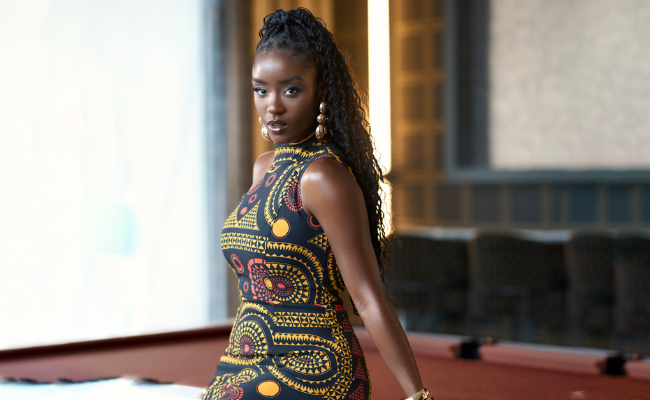
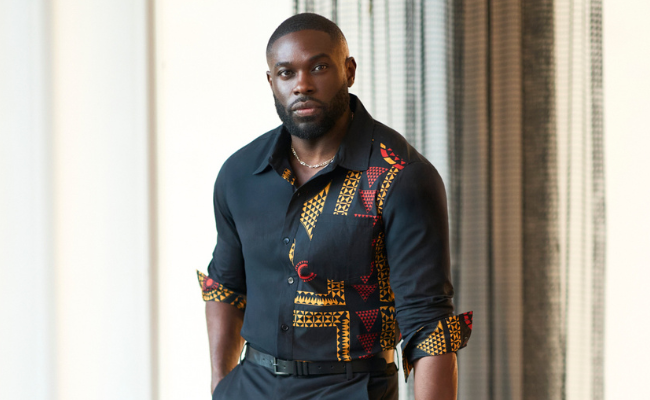
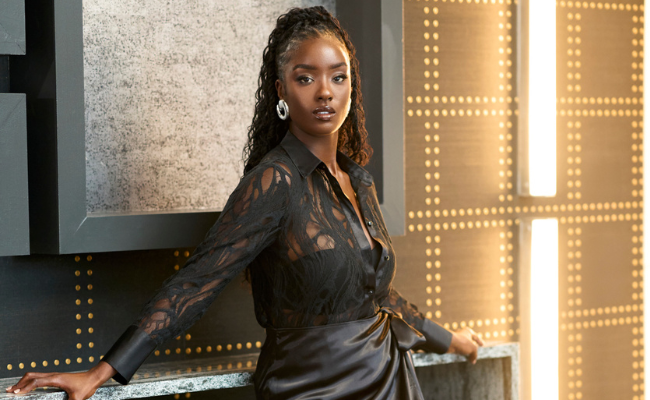
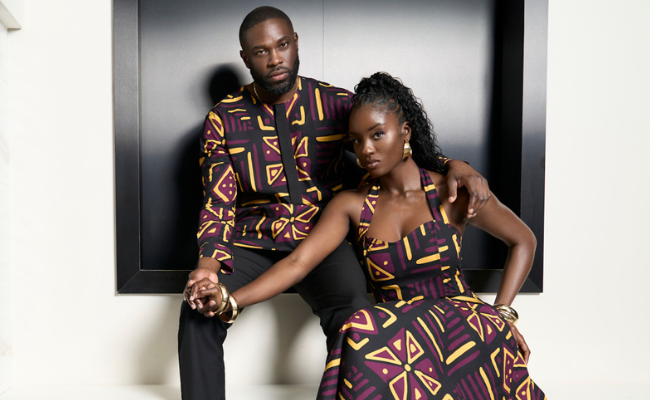
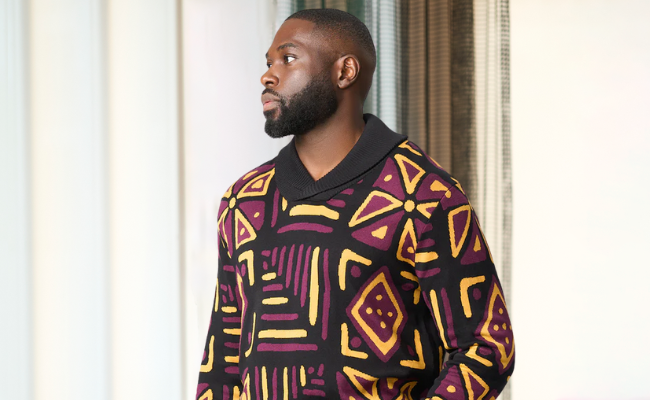
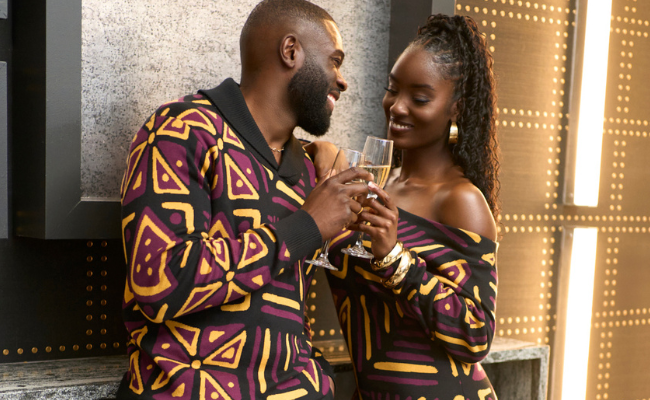
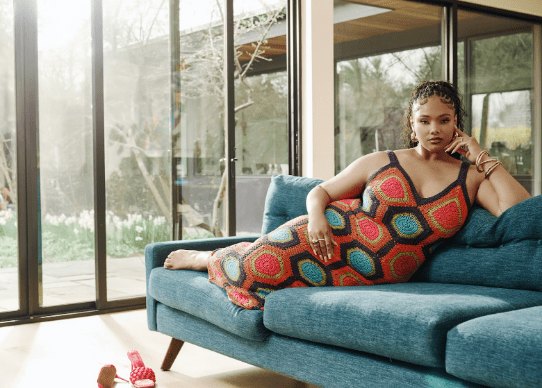
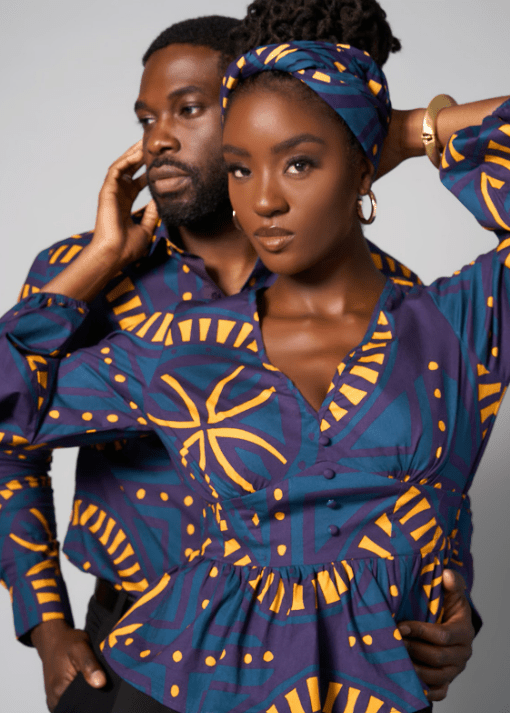










Leave a comment
This site is protected by hCaptcha and the hCaptcha Privacy Policy and Terms of Service apply.